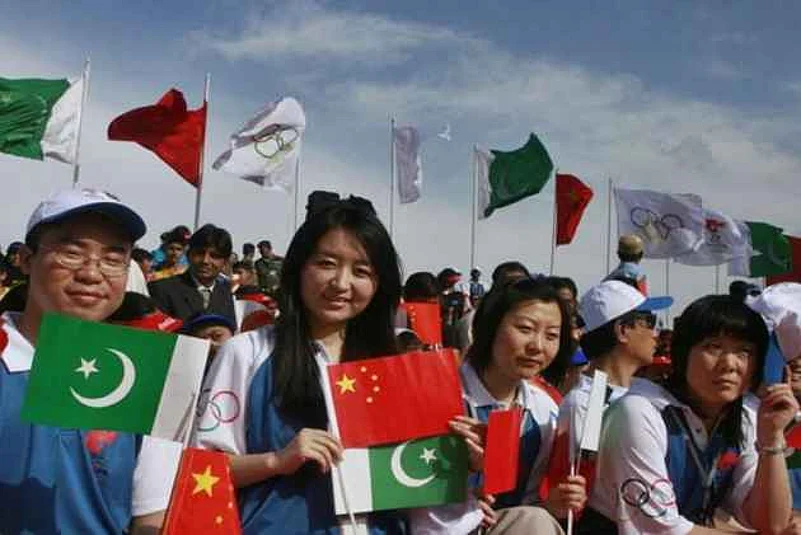Pakistan has not made Mandarin its third official language.
Many media houses, including Outlook which sourced it from news agency ANI, ran the story on Tuesday that Pakistan passed a resolution adopting Mandarin as an Official language of Pakistan.
Quoting Pakistan's media channel Ab Tak which broke the incorrect news on TV, the news agency reported: "The Pakistani Senateon Monday approved a motion to declare Mandarin as one of the official languages of Pakistan. The motion said the step was necessary in view of ties between Pakistan and China."
Blame the snafu on Chinese whispers and officialese. What the House recommended based on Senator Khalid Parveen’s motion, was lost in the communication.
“This House recommends that, in view of the growing collaboration between Pakistan and China under the CPEC, courses of the Official Chinese Language should be launched for all current and prospective Pakistani CPEC human resource in order to overcome any costly communication barriers."
In plain English, what it meant was that the “House recommends that Pakistanis who work or will work for the Chinese project CPEC in future should be taught Mandarin to prevent communication errors that could prove costly”.
The USD 50 billion China Pakistan Economic Corridor (CPEC) is a network of infrastructure projects that are currently under construction throughout Pakistan that will connect China's Xinjiang province with Gwadar port in Pakistan's Balochistan province.
The 1973 Constitution recognises Urdu as Pakistan’s only national language. It also promises to make it the official language of the state. “Article 251 of the Constitution says “arrangements shall be made for [Urdu] being used for official and other purposes within [next] fifteen years”. A subclause allows the use of English until those arrangements are made; another subclause permits provinces to promote “provincial languages” alongside Urdu.”
Not just Indian media houses, even Pakistan's Ambassador to the US Hussain Haqqani also fell for the fake news. He tweeted: "In a short span of 70 years, Pakistan has flirted with promoting four languages that were not the mother tongue of many people in the country - English, Urdu, Arabic, and now Chinese -- ignoring native languages."
The 'fake news' did seem believable to most, considering Pakistan and China's growing affinity.
According to Dawn News, Pakistanis are more interested in learning the Chinese language than ever as they see the tides changing and expect that knowing Mandarin would mean more job opportunities in Pakistan and China.
There have been attempts to dilute the monopoly of Urdu as national language in a country where more Pakistanis are native speakers of Punjabi, Sindhi and Pashto.
A report said: “A private member bill was moved in the National Assembly to declare Balochi, Punjabi, Pashto, Sindhi, Shina and Seraiki as national languages alongside Urdu. The bill was shot down, mainly because it was seen as clashing with Article 251.”















